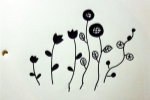
中考关于初中三年变化的英语作文【一】
1。 头绪分明,脉络清楚
写好记叙文,首先要头绪分明,脉络清楚,明确文章要求写什么。要对所写的事件或人物进行分析,弄清事件发生、发展一直到结束的整个过程,然后再收集选取素材。这些素材都应该跟上述五个“ W ”和一个“ H ”有关。尽管不是每篇记叙文里都必须包括这些“ W ”和“ H ”,但动笔之前,围绕五个“ W ”和“ H ”进行构思是必不可少的。
2。 突出中心,详略得当
在文章的框架确定后,对支持故事的素材的选取是很关键的。选材要注意取舍,应该从表现文章主题的需要出发,分清主次,定好详略。要突出重点,详写细述那些能表现文章主题的重要情节,略写粗述那么非关键的次要情节。面面俱到反而使情节罗列化,使人不得要领。这一点是写好记叙文要解决的一个基本问题,也需要一定的技巧。如:
One night a man came to our house and told me, "There is a family with eight children。 They have not eaten for days。" I took some food with me and went。
When I finally came to that family, I saw the faces of those little children disfigured (破坏外貌) by hunger。 There was no sorrow or sadness in their faces, just the deep pain of hunger。
I gave the rice to the mother。 She divided the rice in two, and went out, carrying half the rice。 When she came back, I asked her, "Where did you go?" she gave me this simple answer, "To my neighbors — they are hungry also!"
3。 用活语言,准确生动
记叙文要用具体的事件和生动的语言对人、事、物加以叙述。一篇好的记叙文的语言既要准确、生动,又要表现力强,这样才能把人、事描写得具体生动,其可读性才强。试比较下面一篇例文修改的前后效果。
原文:
One day Xiaoqiang was wandering away。 He was soon lost among people and traffic。 He could not find the way back home and started crying。 Just then, two young students who were passing by found him standing alone in front of a shop and crying。 They went up to Xiaoqiang and asked him what had happened。 Xiaoqiang told them how he got lost and where he lived。 The two students decided to take him home。 Mother was pleased to see Xiaoqiang come back safe and sound。 She invited the two students into the house and gave them some money, but they didn't take it。 She served them with tea but they left。
修改后:
The other day, five-year-old Xiaoqiang left home alone and wandered happily in the street。 After some time, he felt hungry so he wanted to go back home。 But he found he was lost among the crowded people and heavy traffic。 When he could not find the way home, he started and crying。 Just then, two young students who were passing by from school found him sanding crying in front of a shop。 They immediately went up to him。
"Little boy, why are you standing here crying?" they asked。
"I want Mom, I go home。" said the boy, still crying。
"Don't worry, we'll send you home。"
And they spent the next two hours looking for the boy's house。 With the help of a policeman, they finally found it。
When the worried mother saw her son come back safe and sound, she was so thankful and she invited the students into her house。 Gratefully, she offered them some money, saying it was a way to express her thanks, but the young students firmly refused it and left without even a cup of tea。
中考关于初中三年变化的英语作文【二】
或许你喜欢阳光普照的晴天,或许你喜欢秋雨绵绵的雨天;有时你会向往生机勃勃的春天,有时你会向往白雪纷飞的冬日,我们总是想着一个惬意的环境,因为我们所处的环境并非总是如人所愿,当一切都不尽如意时,我们是要抱怨,消极吗?
不,当一切都不是我们所想的时,我们更要改变自己,去接受眼前的处境。
改变自己,是为了减少损失。年轻的我们,总是受环境的影响,时不时影响自己做事的效率。如果说我们是初春已经开了花,正待授粉的果树,当一场大雪突然降临在我们头上时,我们该如何?真正的果树会被果农保护,以免不能结果,但我们这些“果树”呢,难道要等到别人来保护自己吗?如果我们有思想,我们应该学会保护自己。保护自己就是要自己做出某些改变,以适应环境,以减少损失。
改变自己,是为了让我们更成熟,身边的环境总是那样复杂多变,让我们像初试锋芒的雏鹰一样四周碰壁,受伤不少。为了生存,我们必须适应环境,必须改变自己。让自己柔弱的双翅不知疲惫地拍打,用自己的胸肌去撞击岩壁,在这个过程中,我们变得坚强,变得机敏,也慢慢长大,成熟了。雄鹰的自由,雄鹰的英勇是他改掉了软弱,胆怯的性格而逼出的,想要像它一样,就要像它一样学会改变、学会成熟。
改变自己,是为了得到我们想要的。不要认为改变自己的某些东西后,会让自己离目标更远。我们所想的总是达成目的最适合的路径,但事与愿违,有些情况总逼迫我们去改变,当看到目标远了时,不要让目光黯淡,不要让心冷却,告诉自己,目前的路径走不通,我们所做的改变只是转了个弯,或许会有“柳暗花明又一村”的一刻。改变自己,只有冲出困境,去得到想要的。
月的阴晴圆缺,世事的沧海桑田,每天发生在我们身边的事都是不能预测的,在它们改变时,我们也要改变自己,不要让自己陷入泥潭无法逃脱。
无论今夜是月圆之夜,还是会有一场狂风暴雨,我都要告诉自己:我要好好享受发生在今晚的每一个意外。
中考关于初中三年变化的英语作文【三】
只有很好的改变了自己,自己的人生才会越来越顺利,道路才会越走越宽广。
你不能左右生命的长度,但你能改变生命的宽度;你不能左右恶劣的天气,但你能改变自己的心情;你不能改变自己的容貌,但你能改变自己的心灵。
一只雏鹰起初胆小如鼠,当它改变自己懦弱的习性后才能勇敢地飞向蔚蓝的天空。一棵幼草起初孱弱无力,当它在风雨中改变自己柔软的身躯后才能变得更加坚强,紧抓泥土不倒。
一条大河起初弯弯曲曲地在山区奔涌,当它改变自己的运动方向后才能自由地奔向浩瀚的大海。
改变一下自己的.弱点,你会发现自己的生活更丰富多彩;改变一下自己的想法,你会变得自信和坚强。外界的事物既然无法为自己所左右,何不着手改变一下自己呢?自己掌握自己,不也是一种快乐吗?请记住:成功从改变自己开始。
雏鹰、幼草、大河无法改变蓝天、风雨和山地,但它们勇敢地改变了自己,走向辉煌。人也一样,只有改变自己的不良习惯才能完善自己,赢得他人的信赖。我国古代有位青年叫周处,被当地人称作三害之一,“三害”即蛟龙、猛虎和周处。因为他总是欺负别人,人们厌恶他、恨他。周处不想再让别人把自己当成祸害,他决心战胜猛虎和蛟龙,为人民除害。后来,经过艰苦的努力,他终于成功地除掉了二患。也因此赢得大家一致的赞扬,成为了一个为百姓谋利益的好人。周处是勇敢的、明智的,他有勇气改变自己的顽劣之气,从而改变了自己的人生。
其实,我们每天都在改变自己、创造自己、超越自己。只有改变自己,才能走向成功。
中考关于初中三年变化的英语作文【四】
1。 叙述的人称
英语的记叙文一般是以第一或第三人称的角度来叙述的。用第一称表示的是由叙述者亲眼所见、亲耳所闻的经历。它的优点在于能把故事的情节通过“我”来传达给读者,使人到真实可信,如身临其境。如:
The other day, I was driving along the street。 Suddenly, a car lost its control and ran directly towards me fast。 I was so frightened that I quickly turned to the left side。 But it was too late。 The car hit my bike and I fell off it。
用第三人称叙述,优点在于叙述者不受“我”活动范围以内的人和事物的限制,而是通过作者与读者之外的第三者,直接把故事中的情节展现在读者面前,文章的客观性很强。如:
Little Tom was going to school with an umbrella, for it was raining hard。 On the way, he saw an old woman walking in the rain with nothing to cover。 Tom went up to the old woman and wanted to share the umbrella with her, but he was too short。 What could he do? Then he had a good idea。
2。 动词的时态
在记叙文中,记和叙都离不开动词。所以动词出现率最高,且富于变化。记叙文中用得最多的是动词的过去的',这是英语记叙文区别于汉语记叙文的关键之处。英语写作的优美之处就在于这些动词时态的变化,正是这一点才使得所记、所叙有鲜活的动态感、鲜明的层次感和立体感。
3。 叙述的顺序
记叙一件事要有一定的顺序。无论是顺叙、倒叙、插叙还是补叙,都要让读者能弄清事情的来龙去脉。顺叙最容易操作,较容易给读者提供有关事情的空间和时间线索。但这种方法也容易使文章显得平铺直叙,读起来平淡乏味。倒叙、插叙、补叙等叙述方法能有效地提高文章的结构效果,让所叙之事跌宕起伏,使读者在阅读时思维产生较大的跳跃,从而为文章所吸引,深入其中。但这些方法如果使用不当,则容易弄巧成拙,使文章结构散乱,头绪不清,让读者不知所云。
4。 叙述的过渡
过渡在上下文中起着承上启下、融会贯通的作用。过渡往往用在地点转移或时间、事件转换以及由概括说明到具体叙述时。如:
In my summer holidays, I did a lot of things。 Apart form doing my homework, reading an English novel, watching TV and doing some housework, I went on a trip to Qingdao。 It is really a beautiful city。 There are many places of interest to see。 But what impressed me most was the sunrise。
The next morning I got up early。 I was very happy because it was a fine day。 By the time I got to the beach, the clouds on the horizon were turning red。 In a little while, a small part of the sun was gradually appearing。 The sun was very red, not shining。 It rose slowly。 At last it broke through the red clouds and jumped above the sea, just like a deep-red ball。 At the same time the clouds and the sea water became red and bright。
What a moving and unforgettable scene!
5。 叙述与对话
引用故事情节中主要人物的对话是记叙文提高表现力的一种好方法。适当地用直接引语代替间接的主观叙述,可以客观生动地反映人物的性格、品质和心理状态,使记叙生动、有趣,使文章内容更加充实、具体。试比较下面两段的叙述效果:
I was in the kitchen, and I was cooking something。 Suddenly I heard a loud noise from the front。 I thought maybe someone was knocking the door。 I asked who it was but I heard no reply。 After a while I saw my cat running across the parlor。 I realized it was the cat。 I felt released。
这本来应是一段故事性很强的文字,但经作者这么一写,就不那么吸引人了。原因是文中用的都是叙述模式,没有人物语言,把“悬念”给冲淡了。可作如下调整:
I was in the kitchen cooking something。 "Crash!" a loud noise came from the front。 Thinking someone was knocking at the door, I asked, "Who?" No reply。 After a while, I saw my cat running across the parlor。 "It's you。" I said, quite released。
中考关于初中三年变化的英语作文【五】
Last Sunday, Jim went out to fly a kite. The kite flew highly in the sky. Jim ran with it happily.
Suddenly the line was broken and the kite flew away. Soon it disappeared. Where was it?
Jim had no idea. So he had to run here and there to look for the kite. At last he saw it on the top of the tree. He tried to get it down. But he couldn’t. He felt sad.
中考关于初中三年变化的英语作文【六】
一棵在深山里长了好多年的大树,被修剪了枝叶后移栽到新建的公园里。人们围着它,议论着。一个说:“没有这次移栽,它不会被人赏识,要被人赏识就要改变自己的生存环境。”而我却要说:“要被人赏识就要改变自己!”
每个人都是一道靓丽的风景线,世间就只有一个独一无二的你,世界不会为你而改变。因此,我们要改变自己!环境永远不会主动去适应我们自己,我们却可以改变自己,去适应环境,进而取得成功。
也许,我们没有庄周梦蝶的浪漫,没有庄子那“泥泞中亦可”的超然;也许,我们无法像寂寞斗士鲁迅一样以血荐轩辕,深刻揭示中华民族几千年来的劣根性;也许,我们没有海伦凯勒那虽然盲聋但却以心灵探求未知世界的勇敢,但至少,我们可以改变自己,让自己接受《庄子》的熏陶,让自己接受《呐喊》《彷徨》的强音,让自己接受《假如给我三天光明》的洗礼,借助书籍,让心在潜移默化中沸腾,改变自己。
当为官仅七十多天的陶渊明挂印田园归隐山间时,他改变了自己。官场的黑暗,是他无法改变的,变的只能是自己,不为五斗米折腰,与菊为伴,虽然仕途不复,但他高洁的志向却被历史所赏识,为后人所铭记。当御用文人李白呼唤自己放养于青崖间的白鹿,即骑访名山时,他改变了自己。李白以为自己会一展鸿鹄之志,没想却只是为朝廷吟风弄月歌功颂德。无法改变官场的他,只得改变自己的志向,寄情于山水,纵览名山大川。
虽然未能圆自己的经天纬地之梦,但却造就了半个的盛唐,为后人所传颂。他们改变自己,同时也改变了时代,虽不被时人钦慕,但却被后人铭记,在历史的苍穹中闪闪发光。
那些不能改变自己的,只能被环境淘汰。高尔斯华绥笔下《品质》中的老鞋匠虽然拥有全城最好的制鞋手艺,但却不愿改变自己,致使无法跟上机器化的时代,坚持手工制好每双鞋,最终饿死在自己的鞋铺中。改变自己,方能跟上时代的脚步,方能不被环境淘汰。
变,是永恒的法则。改变自己,方可以意志的血滴和拼搏的汗水酿成历久弥香的琼浆,方可以不凋的希望和不灭的梦想筑成固若金汤的铁壁铜墙…
改变自己!

















